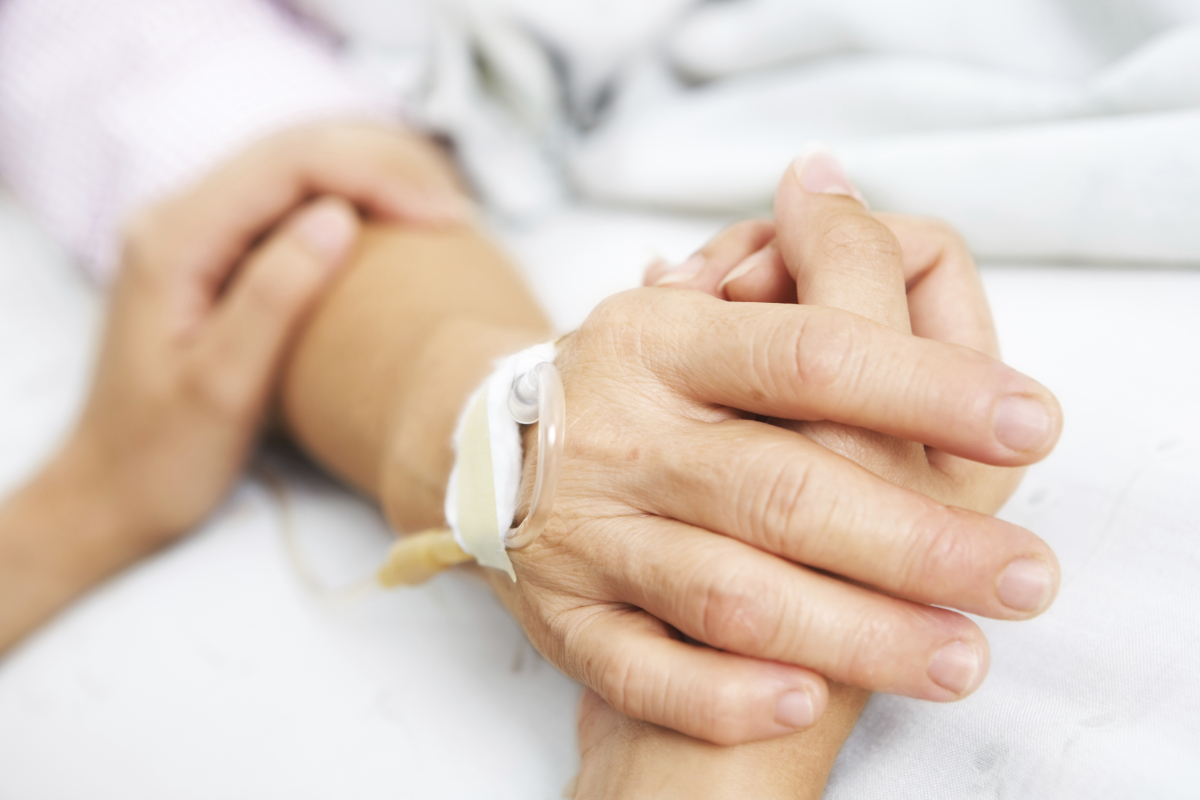Contents:
- Medical Video: Will We See Our Loved Ones in the Afterlife? -- Swedenborg and Life
- Facing death does not mean breaking hope
- Helping loved ones prepare for death
- 1. Present by his side
- 2. Listen to the complaints
- 3. Help deal with the fear of death
- 4. Create a comfortable and calm atmosphere
- 5. Talk about death
- 6. Express love, thank you, and sorry
- 7. Goodbye
Medical Video: Will We See Our Loved Ones in the Afterlife? -- Swedenborg and Life
It is not easy to accept the fact that your loved ones are convicted of certain chronic diseases. Especially if the doctor has stated that there is no treatment or treatment that can cure the patient. However, your role in accompanying patients who are nearing death is so great. You must be able to strengthen and exercise your self in order to help your loved ones prepare for a peaceful death.
Facing death does not mean breaking hope
You may be trapped in a dilemma. Should you accept the fact that your loved one is near death? Or continue to be optimistic, that there must be a way to treat this disease?
Whatever your choice and family, keep in mind that facing death is not the same as despair. Not that you give up. Rather it gives an opportunity for loved ones to process all feelings, concerns, and plans related to his death.
Don't get me wrong, usually people who are near death have a feeling that the time will come soon. This may be expressed implicitly. For example, there is a desire to meet relatives who have died or longing to go far away. You have to keep accompanying him to fight. However, you also need to get ready when the time comes.
By preparing for death, when you die picking up your loved ones you can die with your heart lighter and more peaceful. You can also arrange funeral processions and other matters exactly as the patient wants. This is certainly a part of respect and love for your loved ones who have died.
Helping loved ones prepare for death
Accompanying loved ones who are nearing death is one of the toughest challenges you have to face. However, this experience may be made more meaningful and positive. Here are the steps that can be taken when preparing for the death of a loved one.
1. Present by his side
Your presence to accompany your loved one is the best medicine for him now. Because, depression and a sense of loneliness easily attack people who are seriously ill. You can fill your time by praying together or just sitting by their side while gently holding your hand.
2. Listen to the complaints
Your loved one may feel uncomfortable, hurt, or angry because of his condition. Therefore, listen to all the complaints that they are as possible. Sometimes, patients only need to be listened to, rather than looking for suggestions or solutions. You must be more sensitive and learn to understand these signals.
3. Help deal with the fear of death
Death is a natural process, an inevitable part of life. So, if they express fear of death, comfort and calm with soothing words. For example, "Whatever happens, I'm here with you. You're not alone, really. " You can also convince by saying, "The doctor said, right, the process doesn't hurt at all. You already use drugs so don't worry. "
4. Create a comfortable and calm atmosphere
To prepare for a peaceful death, your loved ones need a comfortable and calm atmosphere. Avoid fighting with other family members in front of patients. You should also limit the number of guests who visit patients indoors. Do not let patients even be too busy receiving guests so they cannot rest and spend quality time with the people who mean the most in their lives.
5. Talk about death
Look carefully if your loved ones start discussing death. For example discussing a funeral or asking to bring in a religious leader to accompany him. Do not even be ignored on the pretext, "You will not go anywhere now." You just have to listen to his wishes carefully and as much as possible to make it happen.
6. Express love, thank you, and sorry
Take your time and other family members to express love, thank you, and apologize to your loved ones. This can provide an injection of enthusiasm and courage for patients to prepare for death.
7. Goodbye
Sometimes, your loved ones already know that the time will come. However, he felt there were still "dependents" namely those he did not want to leave. Therefore, it is important for you and other family members, especially those who become "dependents" to say goodbye and leave the patient's departure later.
Simple words can help loved ones to be more confident that they don't need to worry. For example, "I promise I'll be fine without you. I will take care of our family wholeheartedly and be more enthusiastic about my work. ”Although it is difficult to say, your loved ones need certainty like this to be able to be more calm and steadfast in preparing for death.












